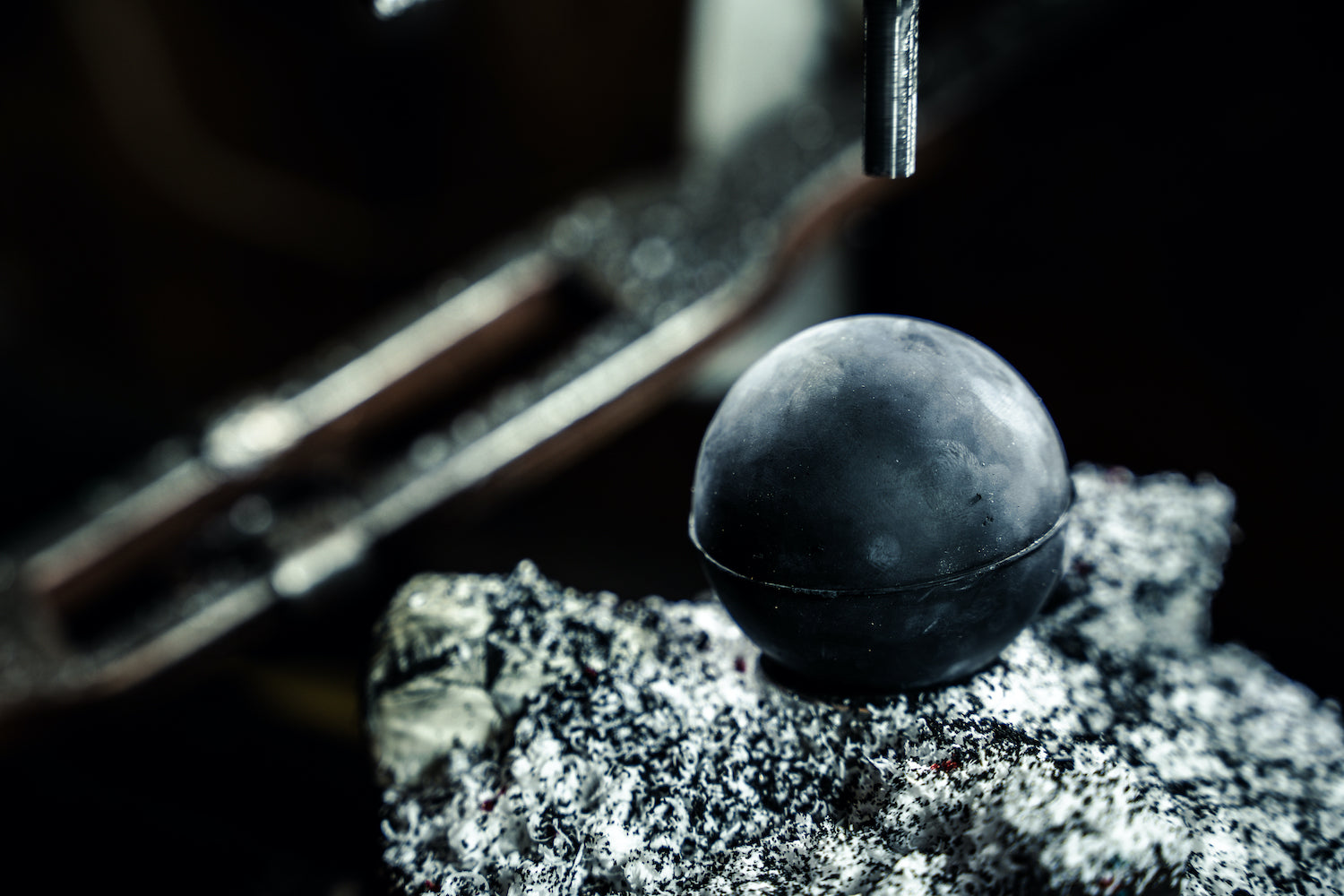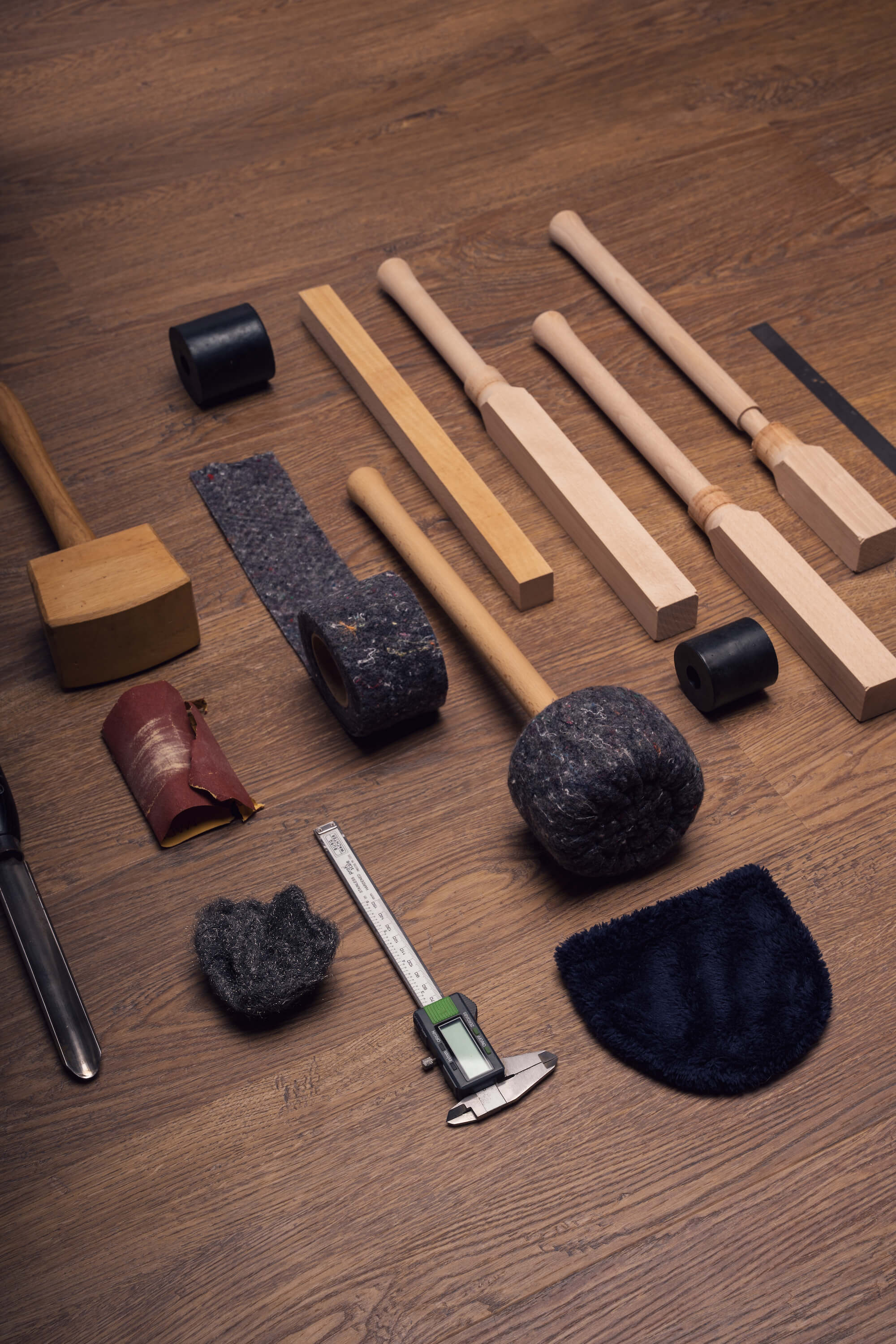Did you know that each of our gong mallets is 100% handmade? All our gong mallets and friction mallets are designed and finally assembled in our workshop in Bruchhausen-Vilsen. Together with his son David, Olli is constantly testing new materials and raw materials, inspired by the needs of the community. The recipes, which are developed here with great passion, are largely implemented by Olli and David themselves. Individual production steps are also carried out by small family businesses in Germany.
Thanks to the precise manual work, we guarantee high quality - in the workmanship and above all in the sound that you can produce with an ollihess gong driver. Small differences and unevenness can occur during the manual work process. These are a natural result of the craftsmanship and make each piece unique.
The production of a ball for an ollihess gong driver
Each ball undergoes a multi-stage process: in many steps, the soft and malleable raw rubber compound is turned into a finished, polished ball of the highest quality. This handcrafted process creates unique gong mallets - small irregularities on the surface of the mallet are completely normal and have no influence on the sound that you can produce with this friction mallet . So that you can better understand how unevenness can occur, we give you a deeper insight into the production process of a Lava Edition gong mallet here:
-
natural caoutchouc in its raw form: The soft and elastic raw material is delivered to our partner company in large blocks.

-
Coloring and mixing: Black color is added to natural caoutchouc and the mass is mixed by rolling.
-
Divide into smaller pieces: Small, square pieces are then cut from the rolled mass and placed on top of each other.

-
Melting in the baking tin: The small blocks are placed individually in the baking tin and melted together.

-
Formation of the ball: This process produces a ball with the fusion seam still visible. The balls are removed from the mold and stored in large baskets for further transport.

-
Delivery to Olli's workshop: The unfinished natural caoutchouc-balls and the already printed black plastic handles arrive at Olli's workshop.

-
Testing the friction mallet: Every ball is thoroughly checked by us: If it shows cracks or imbalances, it is rejected.
-
Processing the ball: In the next step, the freshly pressed ball is carefully processed and polished by hand using various tools to ensure the desired contact with the gong later on.

-
Drilling the hole for the handle: Use a drill to precisely drill a hole in the ball. This must be done very carefully so that the material does not tear out.

-
Cleaning the ball: The drilled ball is then thoroughly cleaned and dried in a washing line.

-
Joining the ball and stem: Once the ball is completely dry, glue is poured into the drilled hole and the stem is glued on.
This handcrafted process results in unique balls - so no two gong pens look 100% alike. Nevertheless, you can rely on one thing, even with small imperfections: The sound you can produce with an ollihess gong pusher will always remain first-class.
If you have any further questions about a product or would like to find out more about our production processes, you can contact us at any time via WhatsApp (bottom right of the website) or our contact page.





